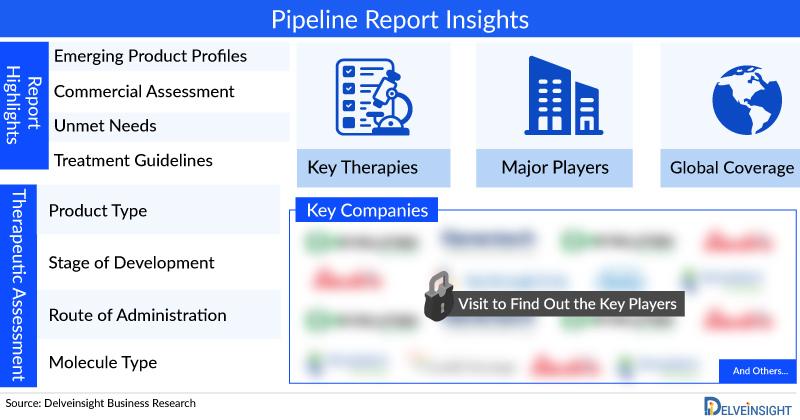Press release
Moderate to Severe Plaque Psoriasis Pipeline Insight 2025: Advancing Biologic Frontiers to Transform Chronic Skin Disease Management | DelveInsight
DelveInsight's "Moderate to Severe Plaque Psoriasis - Pipeline Insight, 2025" report provides a comprehensive analysis of the drug development landscape for this chronic, immune-mediated skin condition, spotlighting over 30 pipeline therapies in clinical evaluation. The report focuses on next-generation biologics and oral agents targeting key immunological pathways such as IL-17, IL-23, TNF-α, and JAK-STAT signaling.The treatment paradigm for moderate to severe plaque psoriasis is undergoing a rapid shift, with newer agents aiming to provide faster skin clearance, longer durability of response, and improved safety profiles. Promising candidates include bimekizumab, mirikizumab, JNJ-77242113, and deucravacitinib, many of which have shown high Psoriasis Area and Severity Index (PASI) scores and durable remission in pivotal trials.
Biopharma players such as UCB, Eli Lilly, AbbVie, Johnson & Johnson, and Bristol Myers Squibb are at the forefront of innovation, with novel therapies offering unique mechanisms of action, including TYK2 inhibition and dual cytokine blockade. These therapies are also being evaluated for co-morbid conditions like psoriatic arthritis and inflammatory bowel disease, enhancing their market potential.
The report also highlights key clinical milestones, regulatory updates, evolving biomarker strategies, and potential first-in-class therapies reshaping the competitive landscape. With a focus on patient-centric outcomes and personalized approaches, the psoriasis pipeline holds the promise of long-term disease control beyond symptom management.
Interested in learning more about the current treatment landscape and the key drivers shaping the moderate to severe plaque psoriasis pipeline? Click here: https://www.delveinsight.com/report-store/moderate-to-severe-plaque-psoriasis-pipeline-insight?utm_source=openpr&utm_medium=pressrelease&utm_campaign=jpr
Key Takeaways from the Moderate to Severe Plaque Psoriasis Pipeline Report
• DelveInsight's moderate to severe plaque psoriasis pipeline analysis depicts a strong space with 30+ active players working to develop 30+ pipeline drugs for moderate to severe plaque psoriasis treatment.
• The leading moderate to severe plaque psoriasis companies include Bristol-Myers Squibb, Akeso Biopharma, Jiangsu Hengrui Medicine, Nimbus Therapeutics, Sun Pharmaceutical Industries Limited, Suzhou Zelgen Biopharmaceuticals, GC Cell Corporation, Bioeq GmbH, Dong-A ST Co., Ltd., Can-Fite Biopharma, Bio-Thera Solutions, AbbVie, Sinocelltech, Janssen Research and Development, Innovent Biologics, Aurigene Discovery, Affibody, GlaxoSmithKline, Abcentra, and others are evaluating their lead assets to improve the moderate to severe plaque psoriasis treatment landscape.
• Key moderate to severe plaque psoriasis pipeline therapies in various stages of development include BMS-986165, SHR 1314, Ebdarokimab, NDI 034858, SCD-044, Jaktinib, CT 303, FYB202, DMB-3115, CF101, BAT2206, ABP 654, SCT630, JTE-451, JNJ-77242113, IBI112, and others.
• In June 2025, the National Psoriasis Foundation (NPF) awarded its Seal of Recognition to Arcutis Biotherapeutics' ZORYVE (roflumilast) cream 0.3% and topical foam 0.3%, both FDA-approved for plaque psoriasis. ZORYVE is the first FDA-approved treatment to receive this Seal, recognizing products that are non-irritating and safe for people with psoriasis.
• In May 2025, Arcutis Biotherapeutics (Nasdaq: ARQT) announced FDA approval of the supplemental NDA for ZORYVE (roflumilast) topical foam 0.3%, now approved to treat scalp and body plaque psoriasis in patients aged 12 and older.
• In May 2025, Fresenius Kabi and Formycon AG announced that the FDA designated OTULFI (ustekinumab-aauz) as an interchangeable biosimilar to STELARA (ustekinumab) for treating plaque psoriasis.
• In May 2025, Teva Pharmaceuticals and Alvotech announced that the FDA approved SELARSDI (ustekinumab-aekn) injection as interchangeable with the reference biologic STELARA (ustekinumab). Starting April 30, 2025, SELARSDI is available in all presentations matching the reference product for the treatment of adults and pediatric patients with psoriatic arthritis, plaque psoriasis, Crohn's disease, and ulcerative colitis.
• In March 2025, Biocon Biologics Ltd. announced successful results from a pivotal Phase 3, randomized, double-blind, multicenter study comparing YESINTEK (biosimilar to Ustekinumab) with the reference product Stelara (Ustekinumab) in adults with moderate to severe chronic plaque psoriasis (PsO).
Request a sample and discover the recent breakthroughs happening in the moderate to severe plaque psoriasis pipeline landscape at https://www.delveinsight.com/report-store/moderate-to-severe-plaque-psoriasis-pipeline-insight?utm_source=openpr&utm_medium=pressrelease&utm_campaign=jpr
Moderate to Severe Plaque Psoriasis Overview
Moderate to severe plaque psoriasis is a chronic autoimmune skin condition characterized by the rapid buildup of skin cells, leading to thick, red, scaly patches called plaques. These plaques often cause itching, discomfort, and can significantly impact a patient's quality of life. The disease typically affects large areas of the body, such as the scalp, elbows, knees, and trunk.
Treatment for moderate to severe plaque psoriasis usually involves systemic therapies, including biologics that target specific immune pathways, oral medications, and phototherapy. Advances in understanding the immune mechanisms behind psoriasis have led to more effective and targeted treatments, improving outcomes and reducing symptoms for many patients.
Find out more about moderate to severe plaque psoriasis medication at https://www.delveinsight.com/report-store/moderate-to-severe-plaque-psoriasis-pipeline-insight?utm_source=openpr&utm_medium=pressrelease&utm_campaign=jpr
Moderate to Severe Plaque Psoriasis Treatment Analysis: Drug Profile
BMS-986165: Bristol Myers Squibb
Deucravacitinib (BMS-986165) is an oral, first-in-class selective tyrosine kinase 2 (TYK2) inhibitor developed by Bristol Myers Squibb. It works by selectively inhibiting TYK2-mediated signaling of key cytokines such as interleukin (IL)-12, IL-23, and type 1 interferons-critical drivers of inflammation in psoriasis and other immune-mediated conditions. Recognized with the 2019 Thomas Alva Edison Patent Award, deucravacitinib represents a novel therapeutic approach and is currently being evaluated in clinical trials across a range of autoimmune diseases, including psoriasis, psoriatic arthritis, lupus, and inflammatory bowel disease.
AK111: Akeso Biopharma
AK111 is an investigational IL-17A monoclonal antibody being developed by Akeso Biopharma for the treatment of autoimmune disorders. Designed to block the IL-17 pathway by targeting both IL-17A and its receptor (IL-17RA), AK111 aims to suppress inflammatory responses in diseases such as moderate to severe plaque psoriasis, ankylosing spondylitis, and axial spondyloarthritis. The drug is currently in Phase II clinical development for moderate to severe plaque psoriasis.
Learn more about the novel and emerging moderate to severe plaque psoriasis pipeline therapies at https://www.delveinsight.com/report-store/moderate-to-severe-plaque-psoriasis-pipeline-insight?utm_source=openpr&utm_medium=pressrelease&utm_campaign=jpr
Moderate to Severe Plaque Psoriasis Therapeutics Assessment
By Product Type
• Mono
• Combination
• Mono/Combination.
By Stage
• Late-stage products (Phase III)
• Mid-stage products (Phase II)
• Early-stage product (Phase I) along with the details of
• Pre-clinical and Discovery stage candidates
• Discontinued & Inactive candidates
By Route of Administration
• Intra-articular
• Intraocular
• Intrathecal
• Intravenous
• Ophthalmic
• Oral
• Parenteral
• Subcutaneous
• Topical
• Transdermal
By Molecule Type
• Oligonucleotide
• Peptide
• Small molecule
Scope of the Moderate to Severe Plaque Psoriasis Pipeline Report
• Coverage: Global
• Key Moderate to Severe Plaque Psoriasis Companies: Bristol-Myers Squibb, Akeso Biopharma, Jiangsu Hengrui Medicine, Nimbus Therapeutics, Sun Pharmaceutical Industries Limited, Suzhou Zelgen Biopharmaceuticals, GC Cell Corporation, Bioeq GmbH, Dong-A ST Co., Ltd., Can-Fite Biopharma, Bio-Thera Solutions, AbbVie, Sinocelltech, Janssen Research and Development, Innovent Biologics, Aurigene Discovery, Affibody, GlaxoSmithKline, Abcentra, and others.
• Key Moderate to Severe Plaque Psoriasis Pipeline Therapies: BMS-986165, SHR 1314, Ebdarokimab, NDI 034858, SCD-044, Jaktinib, CT 303, FYB202, DMB-3115, CF101, BAT2206, ABP 654, SCT630, JTE-451, JNJ-77242113, IBI112, and others.
To dive deep into rich insights for drugs used for moderate to severe plaque psoriasis treatment, visit: https://www.delveinsight.com/report-store/moderate-to-severe-plaque-psoriasis-pipeline-insight?utm_source=openpr&utm_medium=pressrelease&utm_campaign=jpr
Table of Contents
1. Introduction
2. Executive Summary
3. Moderate to Severe Plaque Psoriasis Pipeline: Overview
4. Analytical Perspective In-depth Commercial Assessment
5. Moderate to Severe Plaque Psoriasis Pipeline Therapeutics
6. Moderate to Severe Plaque Psoriasis Pipeline: Late-Stage Products (Phase III)
7. Moderate to Severe Plaque Psoriasis Pipeline: Mid-Stage Products (Phase II)
8. Moderate to Severe Plaque Psoriasis Pipeline: Early Stage Products (Phase I)
9. Therapeutic Assessment
10. Inactive Products
11. Company-University Collaborations (Licensing/Partnering) Analysis
12. Key Companies
13. Key Products
14. Unmet Needs
15. Market Drivers and Barriers
16. Future Perspectives and Conclusion
17. Analyst Views
18. Appendix
Contact Us:
Jatin Vimal
jvimal@delveinsight.com
+14699457679
Healthcare Consulting
https://www.delveinsight.com/consulting-services
About DelveInsight
DelveInsight is a leading Business Consultant and Market Research firm focused exclusively on life sciences. It supports Pharma companies by providing comprehensive end-to-end solutions to improve their performance. Get hassle-free access to all the healthcare and pharma market research reports through our subscription-based platform, PharmDelve.
This release was published on openPR.
Permanent link to this press release:
Copy
Please set a link in the press area of your homepage to this press release on openPR. openPR disclaims liability for any content contained in this release.
You can edit or delete your press release Moderate to Severe Plaque Psoriasis Pipeline Insight 2025: Advancing Biologic Frontiers to Transform Chronic Skin Disease Management | DelveInsight here
News-ID: 4105119 • Views: …
More Releases from DelveInsight
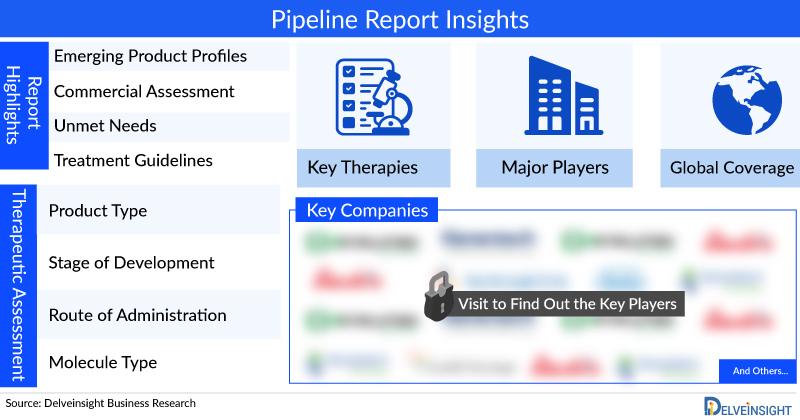
Candidiasis Clinical Trials Analysis 2025: Oral Agents, Next-Generation Echinoca …
DelveInsight's "Candidiasis - Clinical Trials Analysis, 2025" examines an active clinical landscape addressing both mucosal (vulvovaginal) and invasive candidiasis. Unmet needs for safe, oral, and resistance-resilient therapies have driven the development of therapies across multiple modalities - new oral triterpenoids and azoles for recurrent vulvovaginal candidiasis (RVVC), next-generation echinocandins for candidemia/invasive candidiasis, and first-in-class broad-spectrum agents for drug-resistant and systemic infections. Regulatory progress and late-stage trials over the past few…
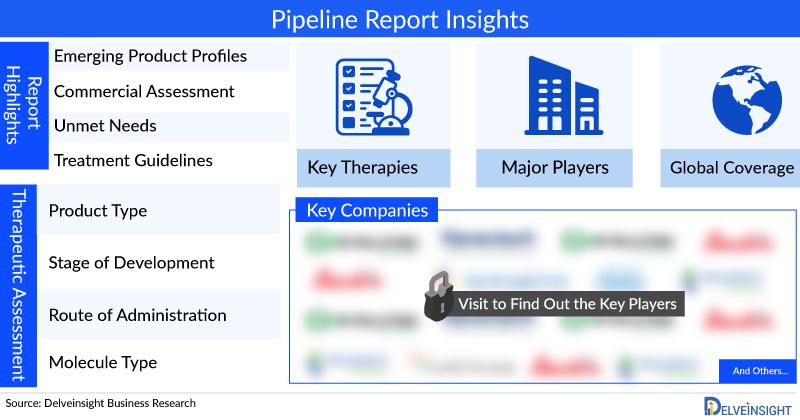
Necrotizing Enterocolitis Clinical Trials Analysis 2025: Probiotics, HMOs, and R …
DelveInsight's "Necrotizing Enterocolitis (NEC) - Clinical Trials Analysis, 2025" highlights an evolving pipeline aimed at reducing NEC incidence and severity in preterm infants. With NEC remaining a leading cause of neonatal morbidity and mortality, clinical studies are shifting toward microbiome-based prevention, human milk-derived biologics, and regenerative approaches.
Probiotic regimens containing Bifidobacterium and Lactobacillus strains are showing consistent efficacy in lowering NEC rates and mortality, driving wider adoption in NICUs. Parallel trials…
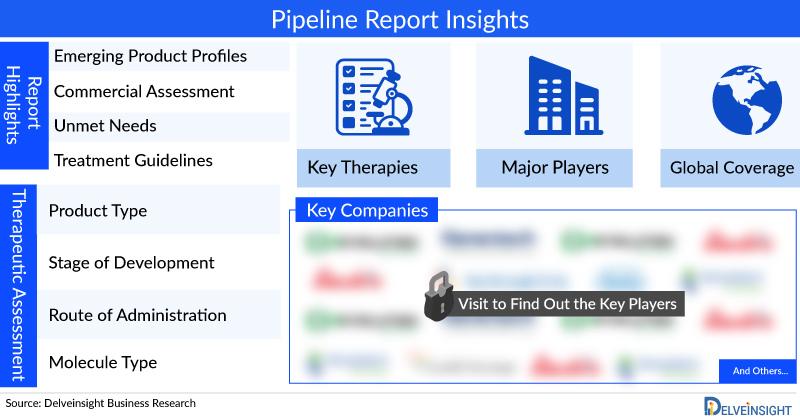
Brain Hemorrhage Clinical Trials Analysis 2025: Hemostasis, Neuroprotection, and …
DelveInsight's "Brain Hemorrhage - Clinical Trials Analysis, 2025" surveys an active acute-care landscape focused on reducing hematoma expansion, limiting secondary injury, and improving functional recovery after intracerebral hemorrhage (ICH) and subarachnoid hemorrhage (SAH). Trials increasingly pursue rapid hemostatic agents, targeted neuroprotectants, and device-based minimally invasive clot evacuation to shorten disability and lower mortality.
Hemostatic and anti-expansion strategies (reversal agents, factor concentrates, and novel transferrable hemostats) aim to stabilize patients early and…
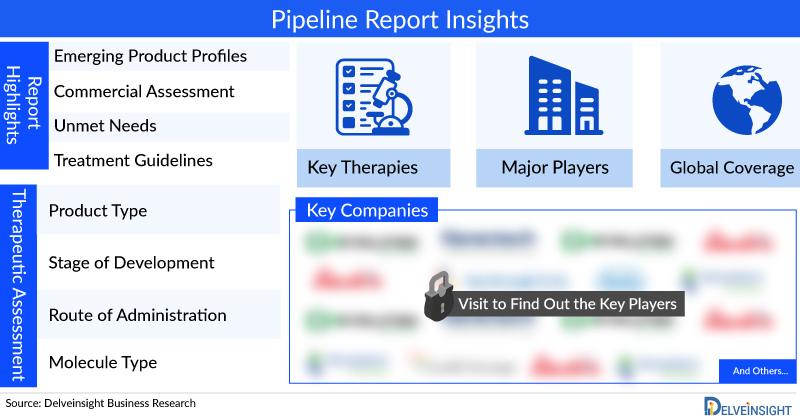
Cachexia Clinical Trials Analysis 2025: Metabolic Modulators, Anabolic Therapies …
DelveInsight's "Cachexia - Clinical Trials Analysis, 2025" examines a diverse development landscape targeting the complex metabolic, inflammatory, and neurohormonal drivers of cancer- and disease-related wasting. Given cachexia's strong association with poor survival, treatment intolerance, and reduced quality of life, trials increasingly measure both anabolic endpoints (lean body mass, muscle strength) and patient-centered outcomes (physical function, fatigue, appetite).
Late-stage and registration-enabling programs span ghrelin agonists and appetite stimulants, selective androgen receptor modulators…
More Releases for Psoriasis
Prevalence Of Psoriasis Driving Market Growth: A Key Catalyst Accelerating Psori …
Use code ONLINE30 to get 30% off on global market reports and stay ahead of tariff changes, macro trends, and global economic shifts.
Psoriasis Market Size Valuation Forecast: What Will the Market Be Worth by 2025?
Over the recent years, there has been a robust growth in the size of the psoriasis market. It is estimated to rise from $26.45 billion in 2024 to $28.93 billion in 2025, with a compound annual…
Psoriasis Vulgaris Market
Introduction
Psoriasis vulgaris, also known as plaque psoriasis, is the most common form of psoriasis, accounting for nearly 80-90% of all cases. It is a chronic autoimmune condition marked by red, scaly plaques that can cause significant physical discomfort and emotional distress. Affecting millions worldwide, psoriasis vulgaris is increasingly recognized as both a dermatological and systemic disease due to its association with arthritis, cardiovascular disease, and metabolic syndrome.
The global psoriasis vulgaris…
Major Growth Driver Identified in 2025 Psoriasis Market: Prevalence Of Psoriasis …
Use code ONLINE30 to get 30% off on global market reports and stay ahead of tariff changes, macro trends, and global economic shifts.
Psoriasis Market Size Valuation Forecast: What Will the Market Be Worth by 2025?
In recent times, the size of the psoriasis market has experienced a significant increase. It is projected to escalate from $26.56 billion in 2024 to $29.5 billion in 2025, reflecting a compound annual growth rate (CAGR)…
Prevalence Of Psoriasis Driving Market Growth: Key Factor Driving The Growth In …
The Psoriasis Market Report by The Business Research Company delivers a detailed market assessment, covering size projections from 2025 to 2034. This report explores crucial market trends, major drivers and market segmentation by [key segment categories].
What Is the Expected Psoriasis Market Size During the Forecast Period?
The psoriasis market has seen rapid growth in recent years. It will increase from $26.56 billion in 2024 to $29.5 billion in 2025, at a…
Plaque Psoriasis to Hold 85% Share of Psoriasis Drugs Market through 2031
Psoriasis is a chronic inflammatory skin disease that occurs due to genetic disposition and environmental factors. Psoriasis is a systemic disease associated with psychological, metabolic, arthritic, and cardiovascular comorbidities. On an average, psoriasis affects around 2 - 3% of the population globally.
Plaque psoriasis, being the number one and most common indication, held nearly 85% share of the US$ 11.37 Bn psoriasis drugs market in 2021, with the market estimated to…
Global Psoriasis Market with Focus on Plaque Psoriasis: Outlook to 2020
Psoriasis is a chronic inflammatory skin disease primarily causing scaling and inflammation of skin, characterized by sharply demarcated, scaly, red skin lesions most often on the elbows, knees, scalps, hands and feet. It occurs when the body’s immune system sends out faulty signals that speed up the growth cycle of skin cells. Psoriasis has been majorly classified into Plaque psoriasis, Guttate psoriasis, Inverse psoriasis, Pustular psoriasis and Erytherodermic psoriasis. It…
